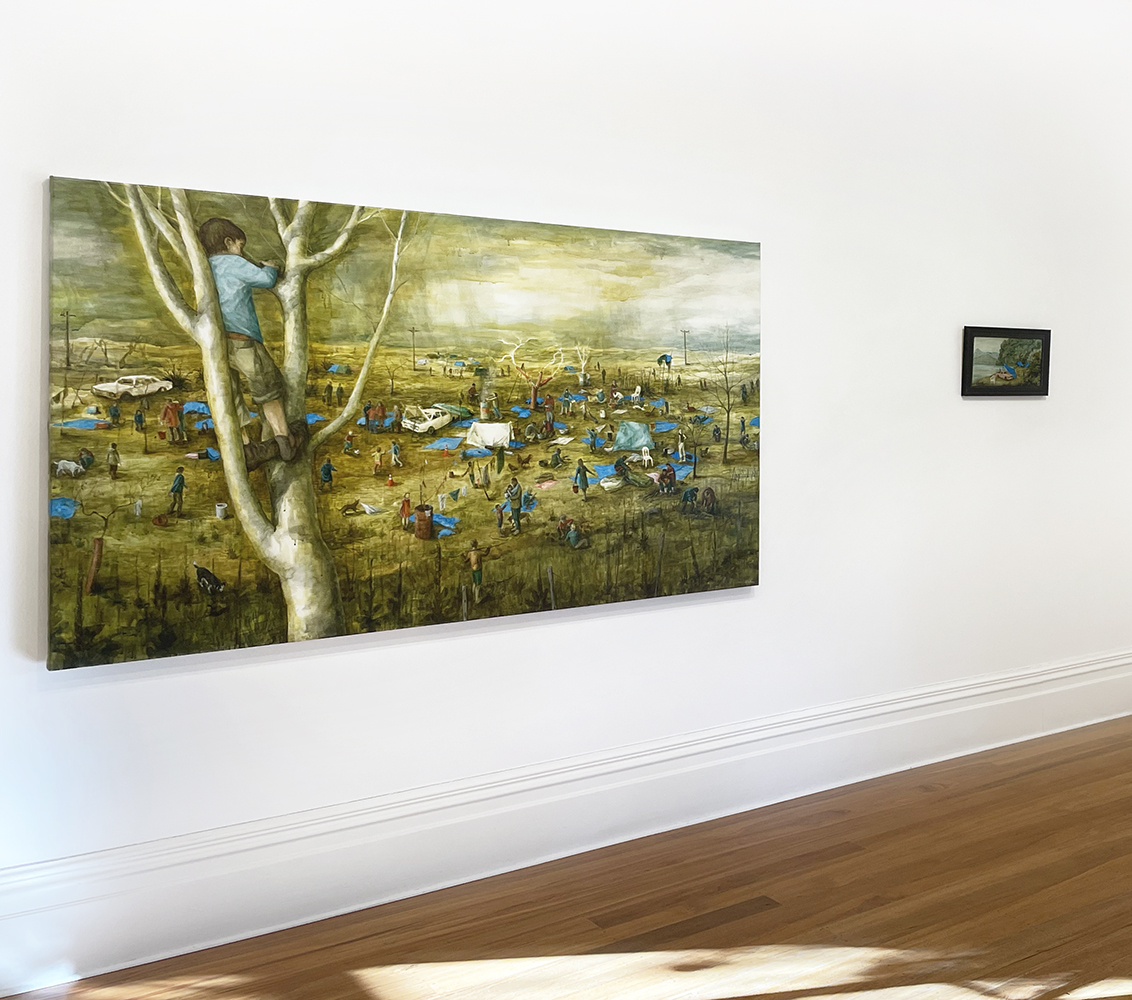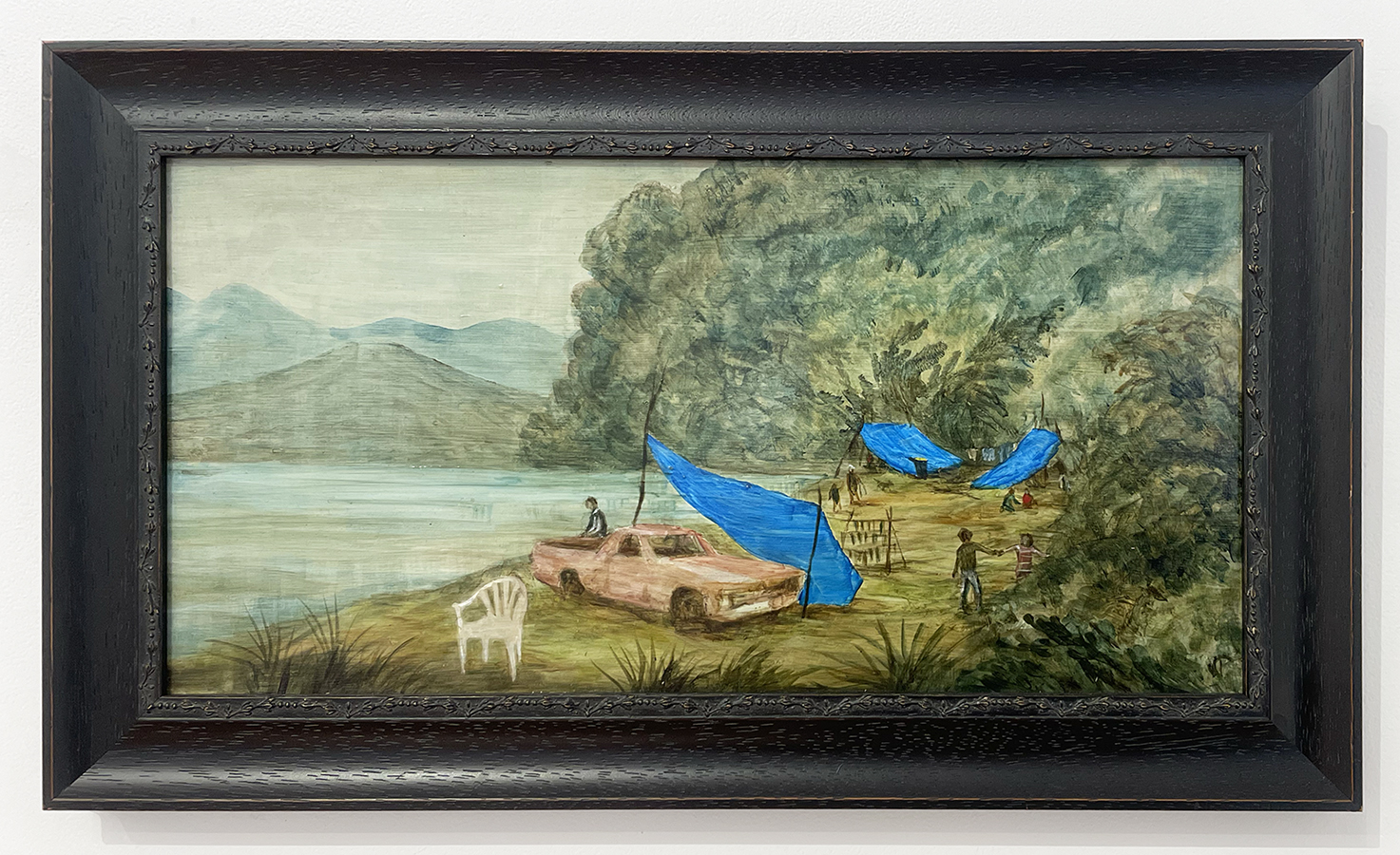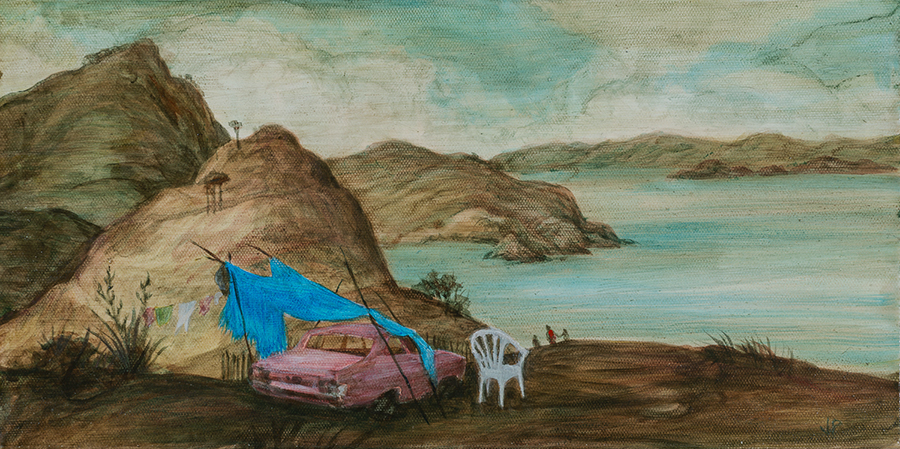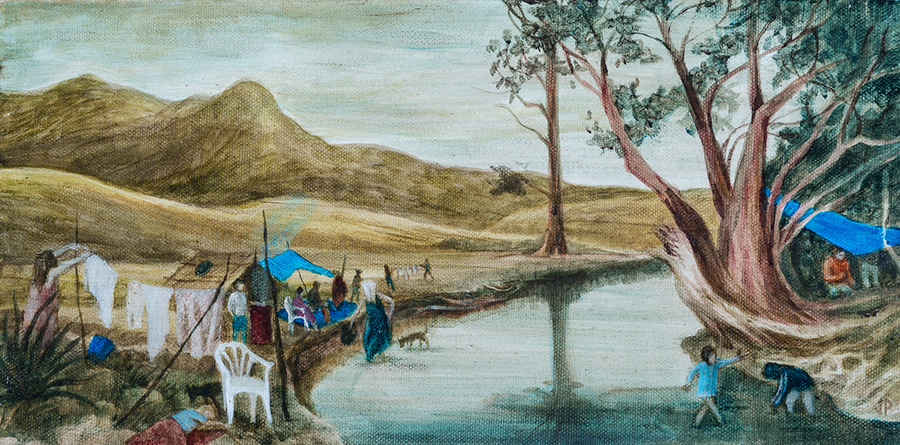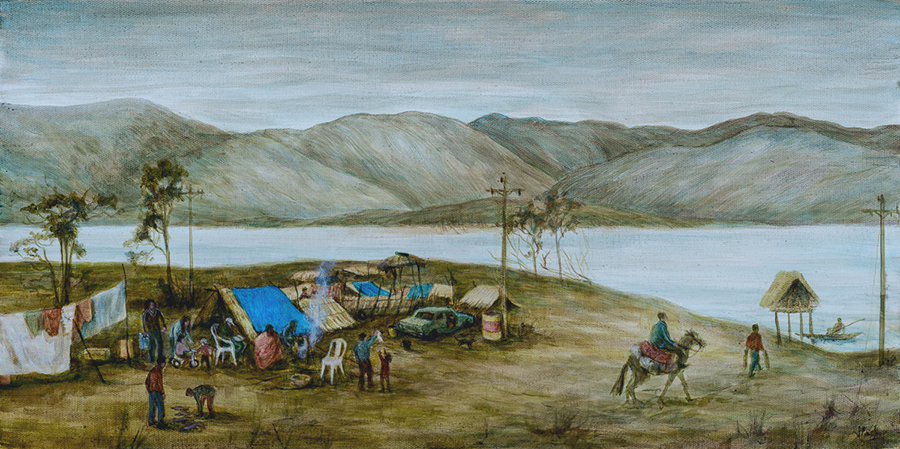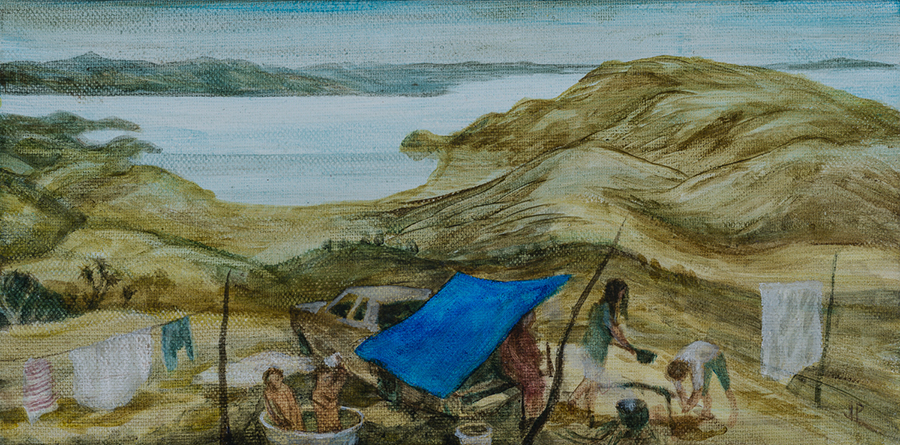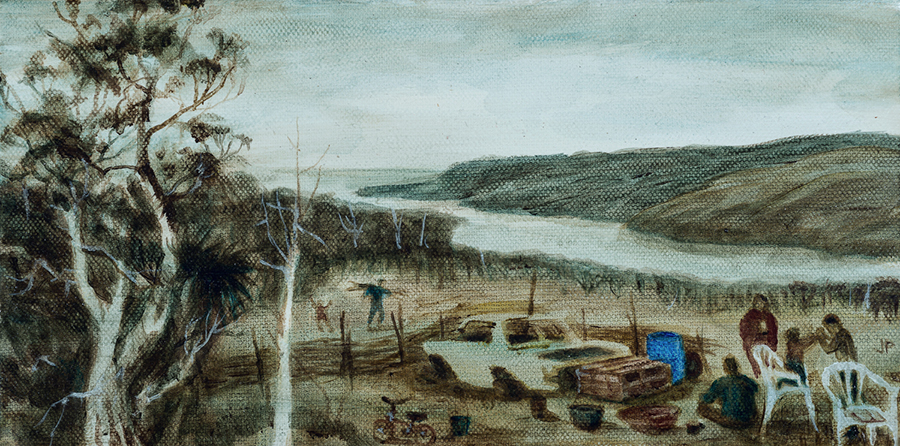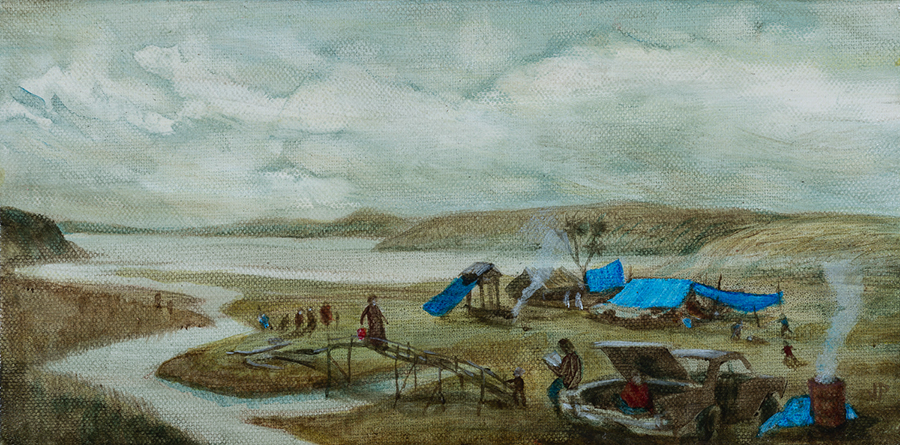JENNA PACKER – Paper Road – 15 July-8 Aug 2025
Paper Road: A road that has been planned but not built
Paper Road is where I have been thinking about the future – in climate, politics, and relationships – and about recorded history versus storytelling. The paintings are of invented locations, with imagined figures drawn in part from art historical images, personal archives and news reportage. Paper Roads speak to potential and are legally accessible to all, but where I live they often look like private property, sometimes blocked off by fences or padlocked gates.
Sometimes people reclaim their right-of-way by cutting padlocks or constructing stiles over barbed wire barriers. The concept of a Paper Road raises issues of dispossession, displacement and resistance. Occupation and use can open access, so can disasters and other disruptions that re-assign boundaries and challenge ownership. Traditional common pathways and common lands, are part of all our histories, as is precarity and the longing for security. These are universals.
By setting the scene in Aotearoa I acknowledge the specific history of colonisation here, the beliefs and ways-of-life that have become dominant, as well as those that have been side-lined by the neo-liberal (capitalist imperialist) project. Where some of my work has placed political and economic power structures literally in the picture (for example, my paintings that feature gigantic bull statues overshadowing a dwarfed populous) in this group, the focus is on the people themselves. It is the people, I realise, I’m always seeking in a landscape painting – seeing what they’re up to, how they’re living. I wanted the painting Paper Road to feel scrappy and tender; to have a sense of cinematic crowd scenes but with vignettes highlighting small stories and actions.
Edward Hanfling wrote in his Art NZ review, Number 193, Autumn 2025:
Packer imagines a post-capitalist future that is eminently credible, where people subsist in campsites put together with leftovers from the age of consumerism – old cars and plastic tarpaulins for shelter, white plastic chairs, metal drums for lighting fires in’. In a series of [six] small paintings (about the size of the cigar-box lids some plein-air painters once used) we see isolated ad hoc lake- or harbour-side settlements. And in the true ‘masterpiece’ of the show, the large pencil-on-canvas Big Tree (2024), Packer envisages a more extensive community sprawling across a desolate environment, the big open spaces of the off-white canvas leaving room for the viewers imagination too. These works are not lyrical and fanciful, but to the point; there is no beating about the bush, and no bull.

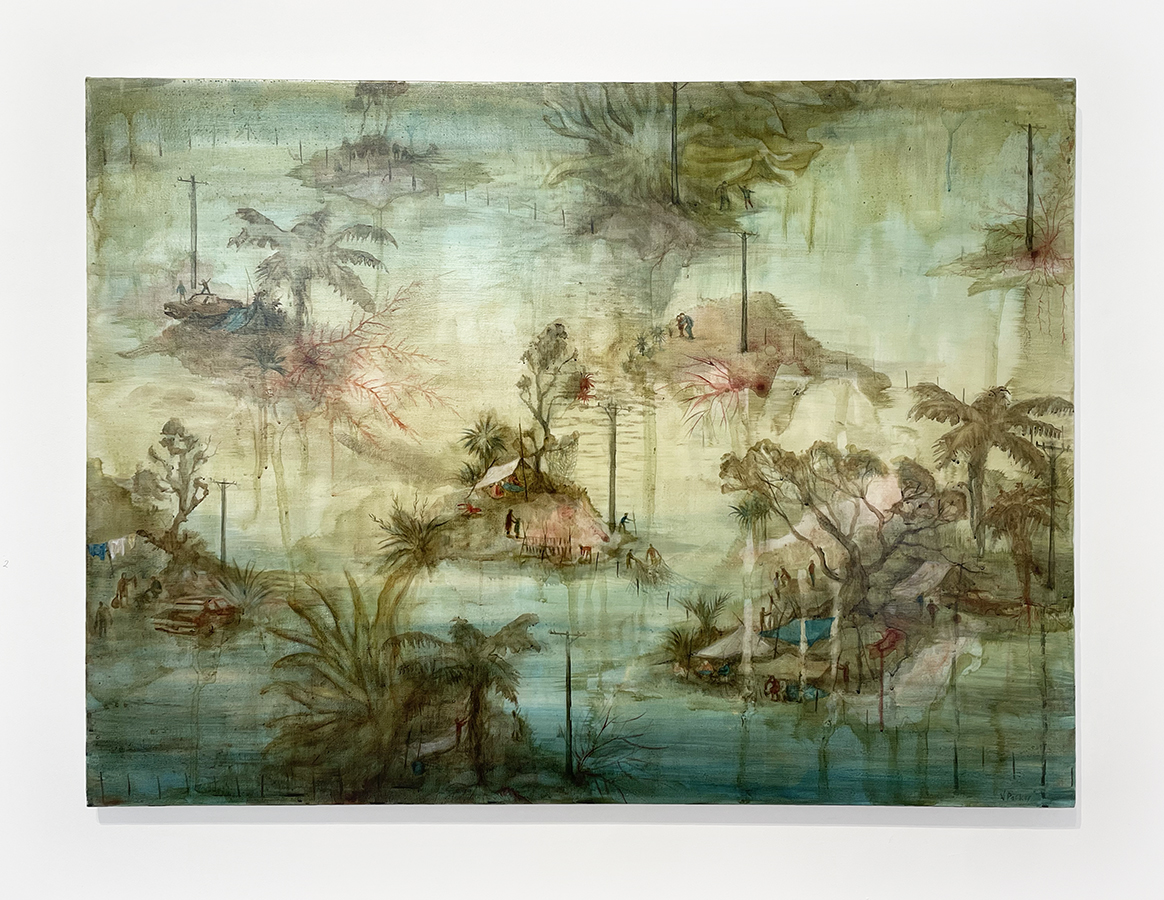
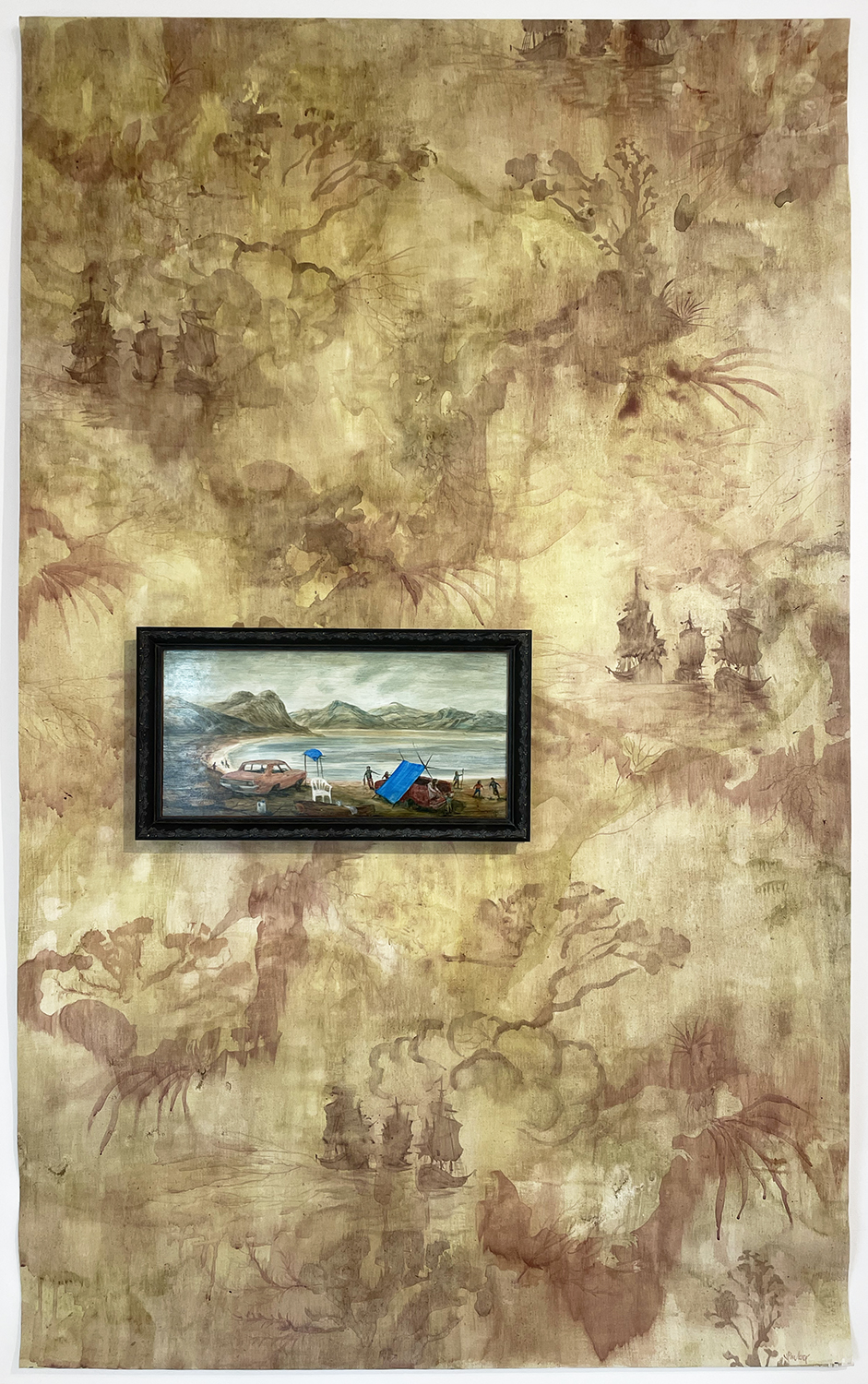
It could be a post-capitalist future, or just post-flood, post-displacement, ‘speculative fiction’ (like writers such as Kim Stanley Robinson use to explore possible future scenarios) with details that anchor us firmly in the recognisable present. Some specific details are from sketchbooks drawn while living in France in marginal communities, anti-globalisation encampments and makeshift car and tarpaulin bivvies for seasonal work. Some figurative elements were found online: the proliferating refugee camps in many parts of the world. Others details are from my own neighbourhood, where temporary accommodation in caravans with tarpaulins becomes settled, permanent and absorbed into our community. Some landscape settings are from my sketches, others are based on early historical New Zealand paintings. In the paintings that appear layered upon wallpaper, the draped ineffectual canopies are a reference to French Toiles (18th century fabric designs) that romanticised the Pacific and Orient. These created little repeating kingdoms of delight; de-contextualised and decorative. I feel compelled to paint blue. Blue tarpaulins are the most basic – increasingly ubiquitous – form of make-shift shelter. There is something that feels sacred about the colour blue. Giotto skies, the Virgin Mary’s robes, hospital blankets, precious lapis lazuli, blue plastic. When I set up these landscape scenarios I always think: What is precious? What are the most important things?
– Jenna Packer
ARTIST TALK
Join us on Saturday 26 July at 11am to hear Jenna Packer speak about her ideas & this exhibition
www.jennapacker.com




